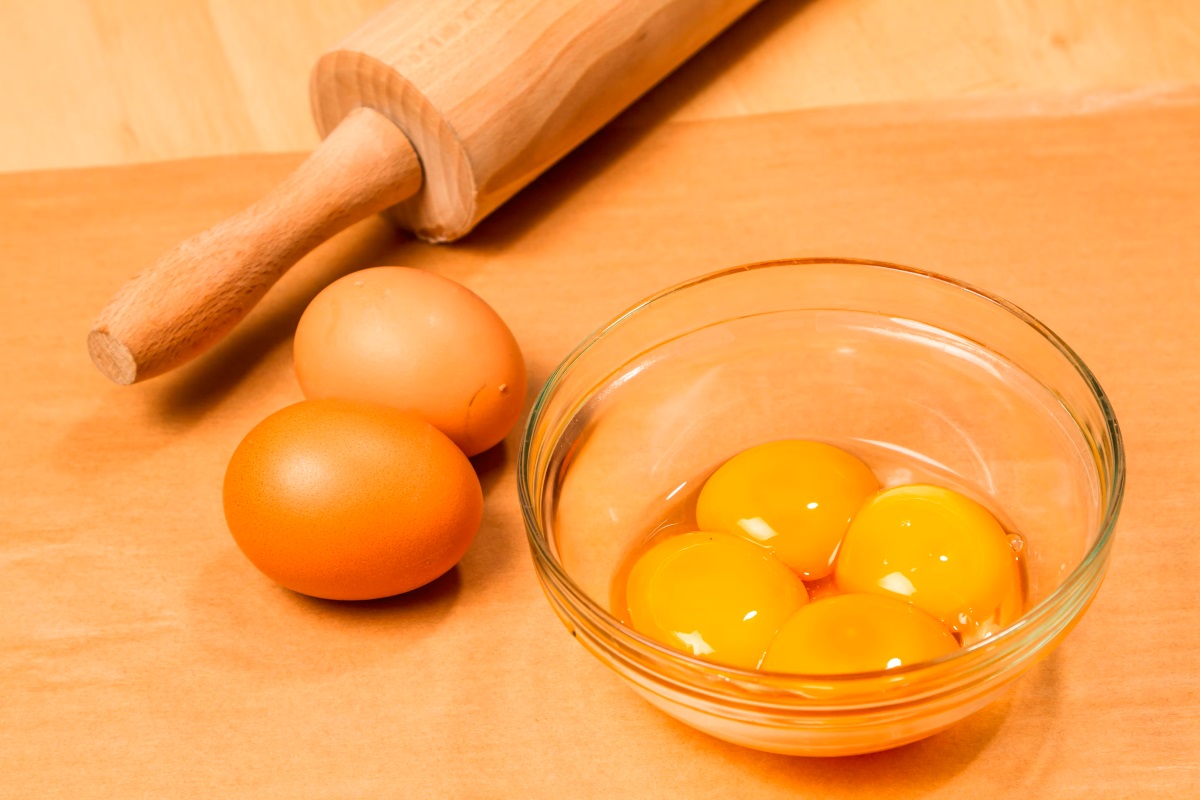

Articles
How To Store Egg Yolks
Modified: August 24, 2024
Learn how to store egg yolks with these helpful articles. Find tips and techniques for preserving and using yolks in various recipes.
(Many of the links in this article redirect to a specific reviewed product. Your purchase of these products through affiliate links helps to generate commission for Storables.com, at no extra cost. Learn more)
Introduction
Eggs are a versatile and nutritious ingredient that is commonly used in various recipes. Whether you’re baking a cake, making custard, or preparing a delicious omelette, eggs play a crucial role in providing texture and flavor to the dish. However, many recipes call for either the use of only egg whites or egg yolks, leaving you wondering what to do with the unused portion.
Storing egg yolks can be a great solution to prevent wastage and make the most out of this valuable ingredient. Egg yolks contain a wealth of nutrients, including vitamins, minerals, and healthy fats, making them a valuable addition to your culinary arsenal. In this article, we’ll explore the reasons why storing egg yolks is beneficial and discuss various methods to store them properly.
By learning how to store egg yolks, you can preserve their freshness and extend their shelf life, ensuring that you always have this essential ingredient on hand whenever you need it. So, let’s dive into the world of egg yolks and discover the best ways to store them for future use.
Key Takeaways:
- Don’t let unused egg yolks go to waste! Learn how to store them in the fridge, freezer, or by salt curing to reduce food waste, save money, and have this versatile ingredient ready for your culinary creations.
- Whether you refrigerate, freeze, or salt cure egg yolks, each method offers unique benefits for preserving freshness and extending shelf life. Embrace the art of storing egg yolks to unlock a world of culinary possibilities and reduce food waste.
Read more: How To Store Egg
Why Store Egg Yolks?
There are several reasons why you might want to consider storing egg yolks instead of discarding them. Here are a few key benefits:
- Reducing Waste: When a recipe calls for only egg whites, it can be disheartening to throw away the yolks. Storing them allows you to use every part of the egg and minimize food waste.
- Convenience: Having pre-separated egg yolks readily available in your fridge or freezer can save you time and effort. You won’t have to worry about separating eggs every time you need yolks for a recipe.
- Versatility: Egg yolks are a versatile ingredient that can be used in various recipes. Whether you want to make custards, sauces, or add richness to your baked goods, having stored egg yolks on hand gives you the flexibility to explore different culinary creations.
- Cost Savings: If you frequently use egg yolks but don’t always need the whites, storing the yolks allows you to buy eggs in bulk or take advantage of cost-effective deals without worrying about wasting the unused portion.
By storing egg yolks, you can make the most out of this nutritious ingredient while reducing food waste and enjoying the convenience of having them readily available for your culinary endeavors.
Methods for Storing Egg Yolks
There are several effective methods for storing egg yolks, each offering its own advantages. Let’s explore three popular methods:
Method 1: Refrigeration
Refrigeration is a simple and convenient method for storing egg yolks. Here’s how:
- Separate the yolks from the whites, ensuring no traces of egg white are left in the yolks.
- Gently place the yolks in a small airtight container.
- For each yolk, add a small amount of cold water or a few drops of lemon juice to prevent them from drying out.
- Seal the container tightly and place it in the refrigerator.
- Stored this way, egg yolks can last for up to 2-4 days.
Note: When using refrigerated egg yolks, it’s essential to check their quality and freshness before using them in recipes.
Method 2: Freezing
Freezing is a popular method for long-term storage of egg yolks. Follow these steps:
- Separate the yolks from the whites, making sure there are no traces of egg white mixed with the yolks.
- Gently whisk the yolks to break them up and ensure they freeze evenly.
- Add a pinch of salt or sugar to maintain the yolks’ texture during freezing.
- Transfer the whisked yolks to an ice cube tray or a silicone mold.
- Cover the tray or mold with plastic wrap and place it in the freezer until the yolks are completely frozen.
- Once frozen, remove the yolks from the tray or mold and transfer them to a freezer-safe container or zip-top bag for long-term storage.
- Label the container with the date and the number of yolks for easy reference.
- Frozen egg yolks can be stored for up to 3-4 months.
Read more: How To Store Egg Salad
Method 3: Salt Curing
Salt curing is a preservation method that adds flavor and extends the shelf life of egg yolks. Here’s how you can do it:
- Combine equal parts of salt and sugar in a bowl.
- Spread half of the salt and sugar mixture in the bottom of a shallow container.
- Create small wells or indentations in the mixture.
- Gently place the separated egg yolks in the wells, making sure they don’t touch each other.
- Cover the yolks completely with the remaining salt and sugar mixture.
- Seal the container with a lid or plastic wrap and refrigerate it for at least 4-7 days.
- After curing, remove the yolks from the salt and sugar mixture, rinse them with cold water, and pat them dry.
- Store the cured yolks in an airtight container in the refrigerator for up to 2-3 weeks.
These three methods offer different options for storing egg yolks based on your needs and preferences. Choose the method that suits you best and enjoy the convenience of having preserved egg yolks at your fingertips.
Method 1: Refrigeration
Refrigeration is a simple and effective method for storing egg yolks when you need to use them within a few days. Here’s how you can store egg yolks in the refrigerator:
- Start by separating the yolks from the whites, being careful not to get any traces of egg white in the yolks.
- Gently place the egg yolks in a small airtight container. You can use a glass or plastic container with a tight-fitting lid to ensure freshness.
- If you plan to use the egg yolks within a day or two, you can skip this step. However, if you want to store them for a longer period, add a small amount of cold water or a few drops of lemon juice to the container. This will help prevent the yolks from drying out.
- Seal the container tightly to prevent any air from entering and causing spoilage.
- Label the container with the date to keep track of how long the egg yolks have been stored.
- Place the container in the refrigerator, preferably on a shelf where it won’t be disturbed.
- Stored properly, egg yolks can last in the refrigerator for up to 2-4 days.
It’s important to note that when using refrigerated egg yolks, it’s essential to check for any signs of spoilage before using them in recipes. If the yolks have an off smell or unusual appearance, it’s best to discard them to avoid any foodborne risks.
Remember, refrigeration is ideal for short-term storage of egg yolks, especially when you’re planning to use them within a few days. If you need to store them for a longer period, you may want to consider freezing or salt curing as alternative methods.
Method 2: Freezing
Freezing is an excellent method for long-term storage of egg yolks, allowing you to use them at your convenience without worrying about spoilage. Here’s a step-by-step guide on how to freeze egg yolks:
- Start by separating the egg yolks from the whites, ensuring there are no traces of egg white mixed with the yolks. You can use an egg separator or carefully transfer the yolk back and forth between the two halves of the eggshell.
- Gently whisk the egg yolks to break them up and ensure they freeze evenly. Avoid overwhisking, as this can lead to a change in texture.
- If desired, you can add a pinch of salt or sugar to the whisked egg yolks. Salt helps maintain the yolks’ texture during freezing, while sugar can act as a stabilizer and aid in preserving their flavor.
- Now, transfer the whisked egg yolks to an ice cube tray or a silicone mold. Each well or compartment should hold one yolk.
- Cover the tray or mold with plastic wrap to prevent freezer burn and the absorption of any odors from other foods in the freezer.
- Place the tray or mold in the freezer, making sure it sits flat and remains undisturbed until the yolks are completely frozen. This typically takes a few hours.
- Once frozen, remove the individual egg yolks from the tray or mold. You can use a small spatula or knife to gently pry them out.
- Transfer the frozen egg yolks to a freezer-safe container or a zip-top bag. Label the container with the date and the number of yolks for easy reference.
- Make sure to remove as much air as possible from the bag or container before sealing it to prevent freezer burn.
- Frozen egg yolks can be stored in the freezer for up to 3-4 months.
When you’re ready to use the frozen egg yolks, simply thaw them in the refrigerator overnight or place them in a bowl of cool water for quicker defrosting. It’s important to note that once thawed, the texture of the yolks may become slightly different, so they’re best used in recipes where the texture isn’t crucial, such as baked goods or sauces.
Freezing egg yolks is a convenient way to store them for an extended period without compromising their quality. This method ensures that you always have a supply of egg yolks on hand for your favorite recipes.
Method 3: Salt Curing
Salt curing is a traditional preservation method that adds unique flavor and extends the shelf life of egg yolks. Here’s a step-by-step guide on how to salt cure egg yolks:
- Start by combining equal parts of salt and sugar in a bowl. The amount you need will depend on how many egg yolks you’re curing.
- Spread half of the salt and sugar mixture in the bottom of a shallow container. You can use a glass or ceramic dish for this purpose.
- Create small wells or indentations in the salt and sugar mixture, making sure they are large enough to hold the yolks without them touching each other.
- Gently separate the egg yolks from the whites, being careful not to break them. Place each yolk in a well or indentation.
- Once all the yolks are placed, cover them completely with the remaining salt and sugar mixture. Make sure they are fully encased.
- Seal the container with a lid or plastic wrap to prevent moisture and odors from affecting the curing process.
- Place the container in the refrigerator and let the yolks cure for at least 4-7 days. This process draws out moisture from the yolks and helps preserve them.
- After the curing period, remove the egg yolks from the salt and sugar mixture. They will be firm and slightly dry to the touch.
- Rinse the cured yolks under cold water to remove any excess salt and sugar.
- Pat the yolks dry with a clean kitchen towel or paper towel, ensuring they are completely dry.
- Store the cured yolks in an airtight container in the refrigerator for up to 2-3 weeks.
Cured egg yolks have a firm texture and a concentrated flavor. They can be grated or shaved over pasta, salads, or other dishes to add a unique umami taste. Keep in mind that cured egg yolks are high in salt, so adjust the seasoning in your recipes accordingly.
Using the salt curing method allows you to transform egg yolks into a delightful ingredient with an extended shelf life. Experiment with different spices or herbs added to the salt and sugar mixture to customize the flavor of your cured yolks.
Store egg yolks in an airtight container in the refrigerator with a little bit of water to prevent them from drying out. They can be stored for up to 4 days.
Read more: How To Store Eggs For Camping
Tips for Storing Egg Yolks
Proper storage of egg yolks is essential to maintain their quality and ensure their usability in future recipes. Here are some helpful tips to consider when storing egg yolks:
- Separation: Make sure to separate the egg yolks from the whites carefully without any traces of egg white mixed with the yolks. Even a small amount of egg white can negatively affect the storage and texture of the yolks.
- Container Choice: Use airtight containers made of glass or plastic to store egg yolks. These containers help prevent air exposure, which can lead to spoilage and off-flavors.
- Additive Protection: If you plan to refrigerate or freeze egg yolks for an extended period, consider adding a small amount of cold water or a few drops of lemon juice before sealing the container. This helps maintain moisture levels and prevents drying out.
- Labeling: Always label the container with the date of storage. This way, you can keep track of how long the egg yolks have been stored and prioritize their use based on freshness.
- Freezing in Portions: When freezing egg yolks, consider portioning them in individual servings according to the amount you typically use in recipes. This way, you can easily thaw and use what you need without having to thaw the entire batch.
- Proper Thawing: When thawing frozen egg yolks, it is best to do so in the refrigerator overnight. Slow thawing helps maintain the yolks’ texture and reduces the risk of bacterial growth. Avoid thawing them at room temperature to prevent potential food safety issues.
- Quality Check: Before using stored egg yolks, always check their quality. Look for any signs of spoilage such as off odor or unusual appearance. If the yolks appear off or have an unpleasant smell, it is best to discard them.
By following these tips, you can ensure that your stored egg yolks retain their freshness, flavor, and quality for as long as possible, allowing you to use them confidently in your culinary creations.
Conclusion
Storing egg yolks is a practical and sustainable solution to prevent wastage and maximize the use of this essential ingredient. Whether you choose to refrigerate, freeze, or salt cure the yolks, each method offers its own benefits for preserving their freshness and extending their shelf life.
Refrigeration is ideal for short-term storage, allowing you to keep egg yolks fresh for a few days. It’s a simple method that requires minimal preparation. Freezing, on the other hand, provides a long-term storage option, keeping the yolks ready for use for several months. By whisking the yolks and portioning them, you can easily incorporate them into recipes whenever needed. For a unique twist, salt curing transforms the yolks into a flavorful and seasoned ingredient that can elevate various dishes.
By learning how to store egg yolks properly, you can reduce food waste, save money, and enjoy the convenience of having this versatile ingredient readily available. Remember to separate the yolks carefully, choose suitable containers, and label them to keep track of their storage duration. Additionally, perform a quality check before using stored yolks, ensuring they are safe and in good condition.
So, the next time you find yourself with unused egg yolks, don’t discard them. Instead, employ one of these storage methods and unlock a world of possibilities in your culinary adventures. Embrace the art of storing egg yolks, and you’ll always have this valuable ingredient at your fingertips to create mouthwatering recipes with ease.
Frequently Asked Questions about How To Store Egg Yolks
Was this page helpful?
At Storables.com, we guarantee accurate and reliable information. Our content, validated by Expert Board Contributors, is crafted following stringent Editorial Policies. We're committed to providing you with well-researched, expert-backed insights for all your informational needs.

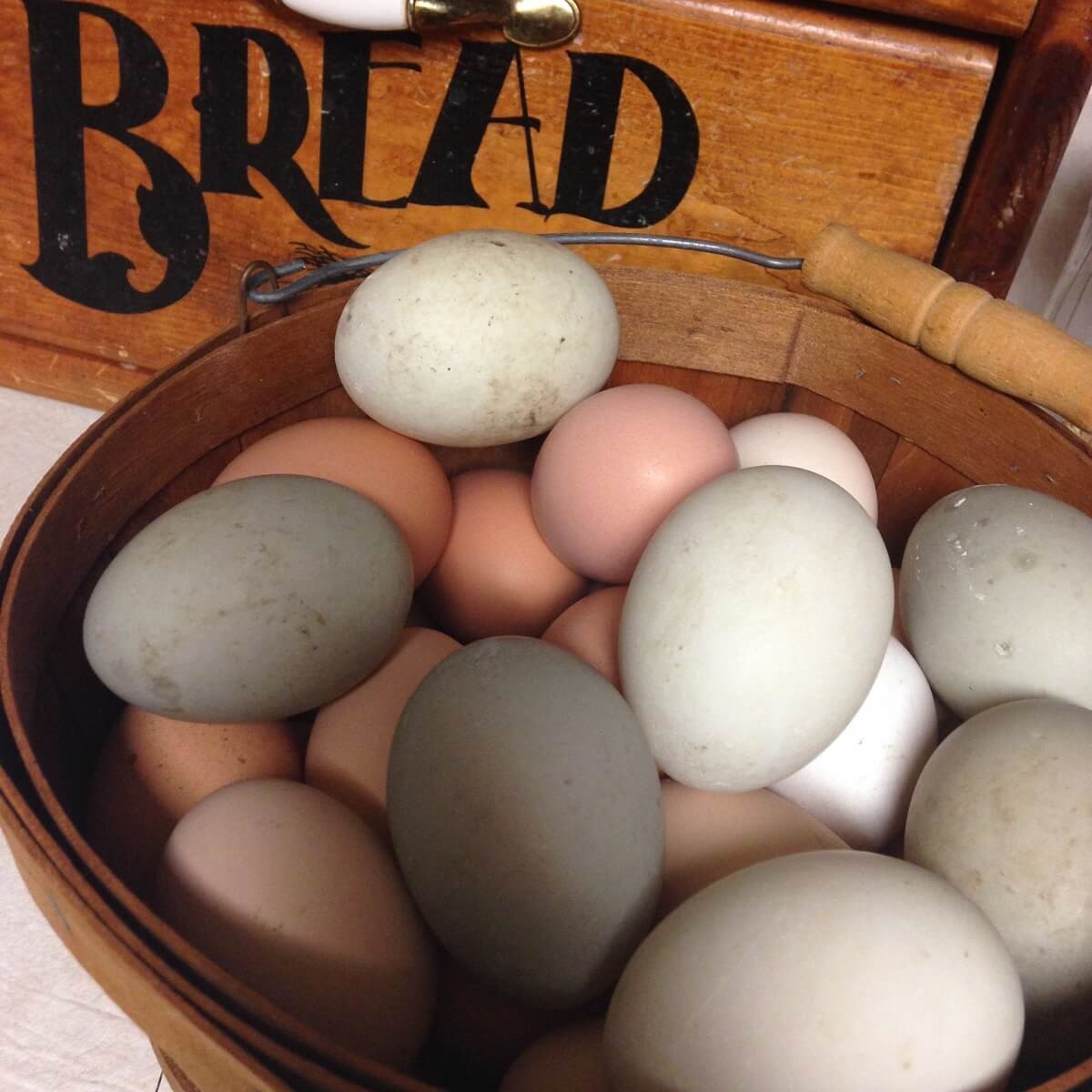
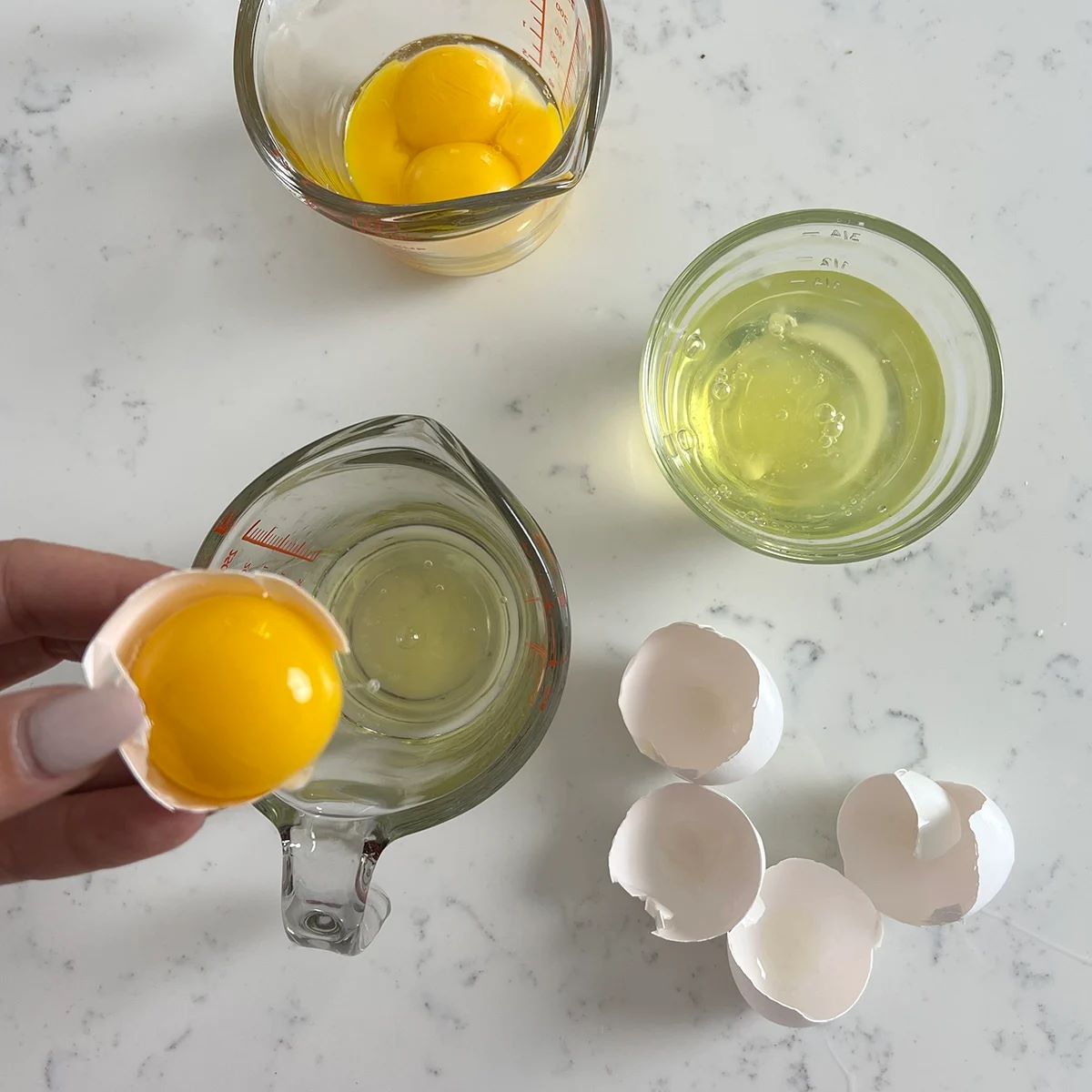

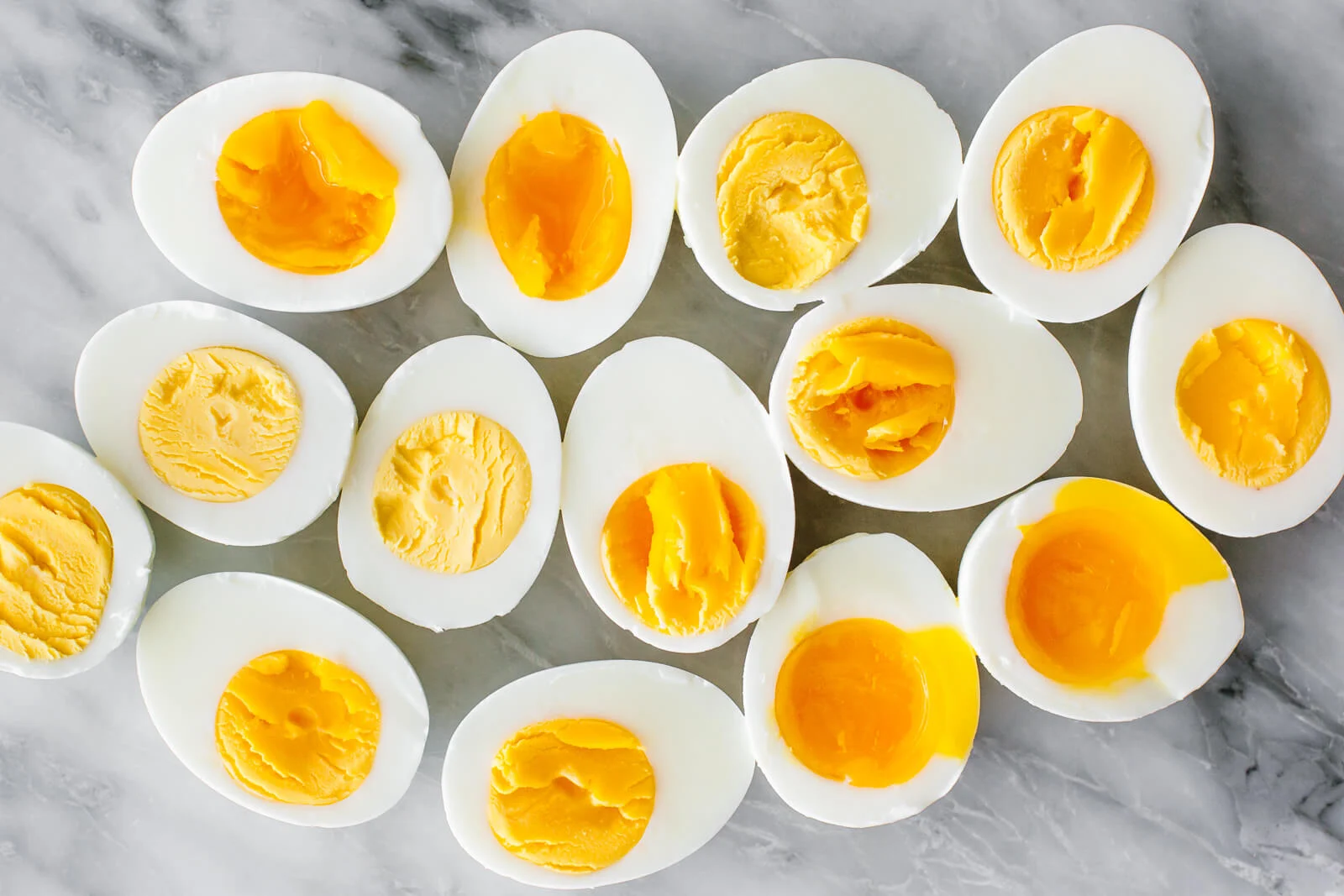
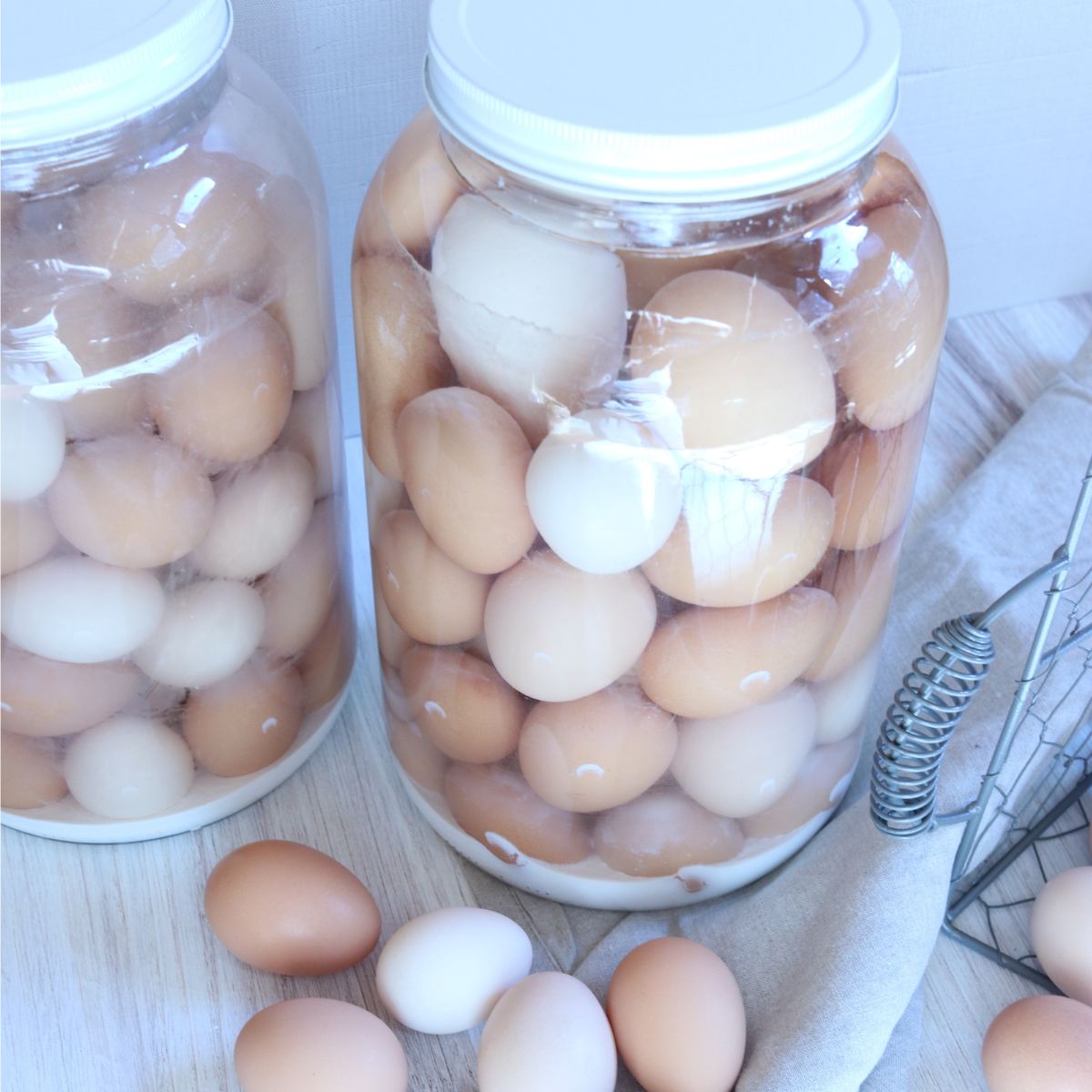
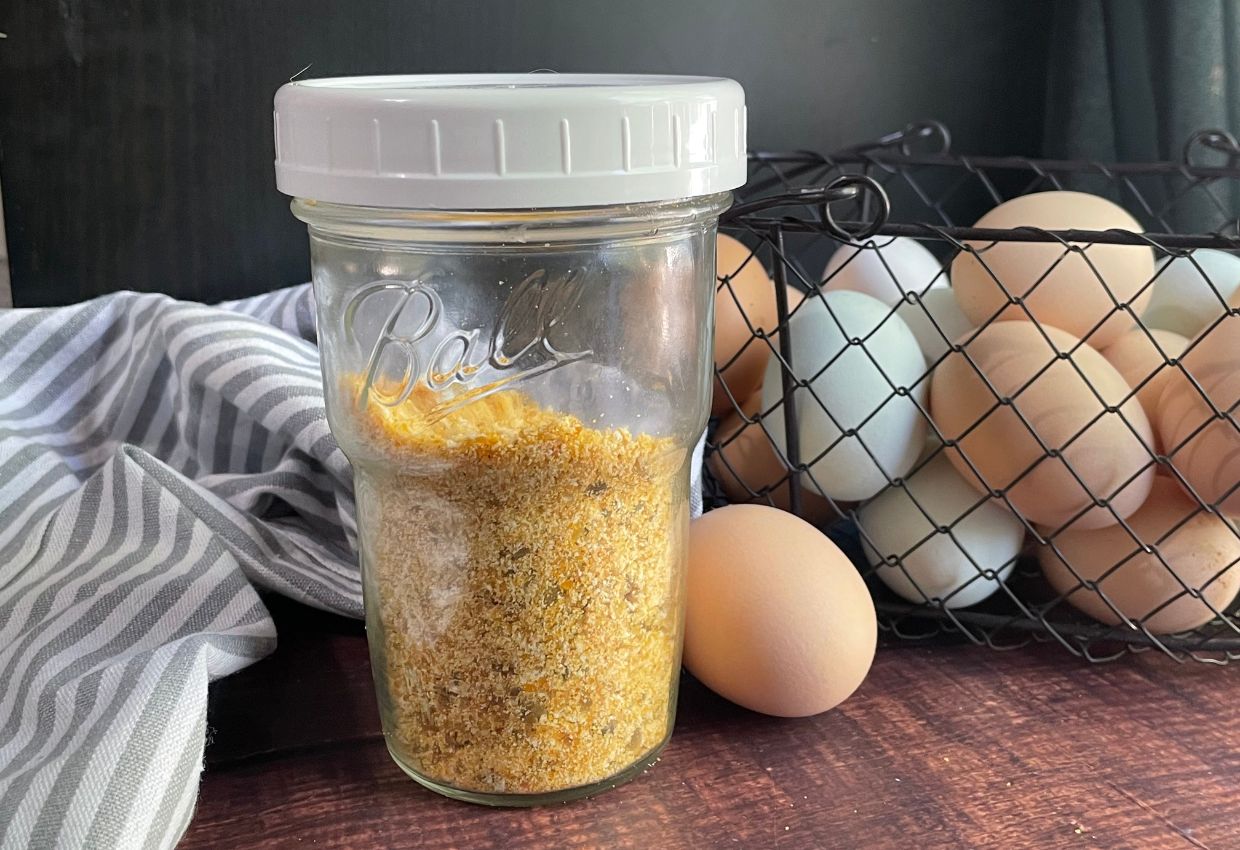
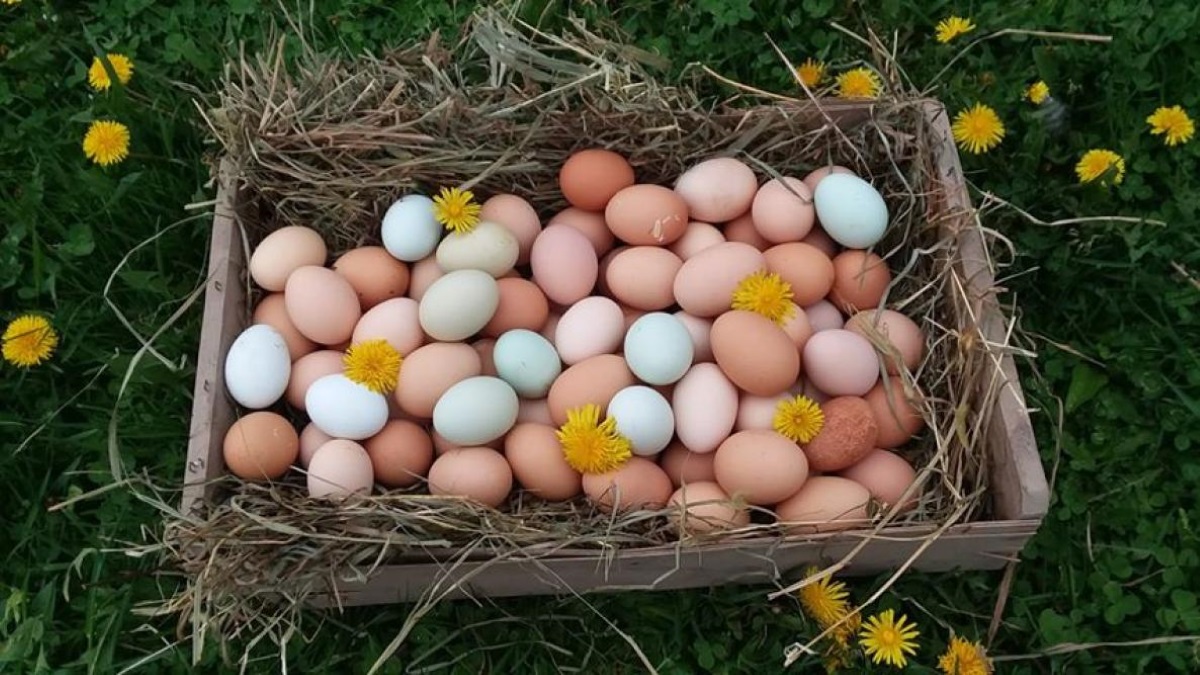
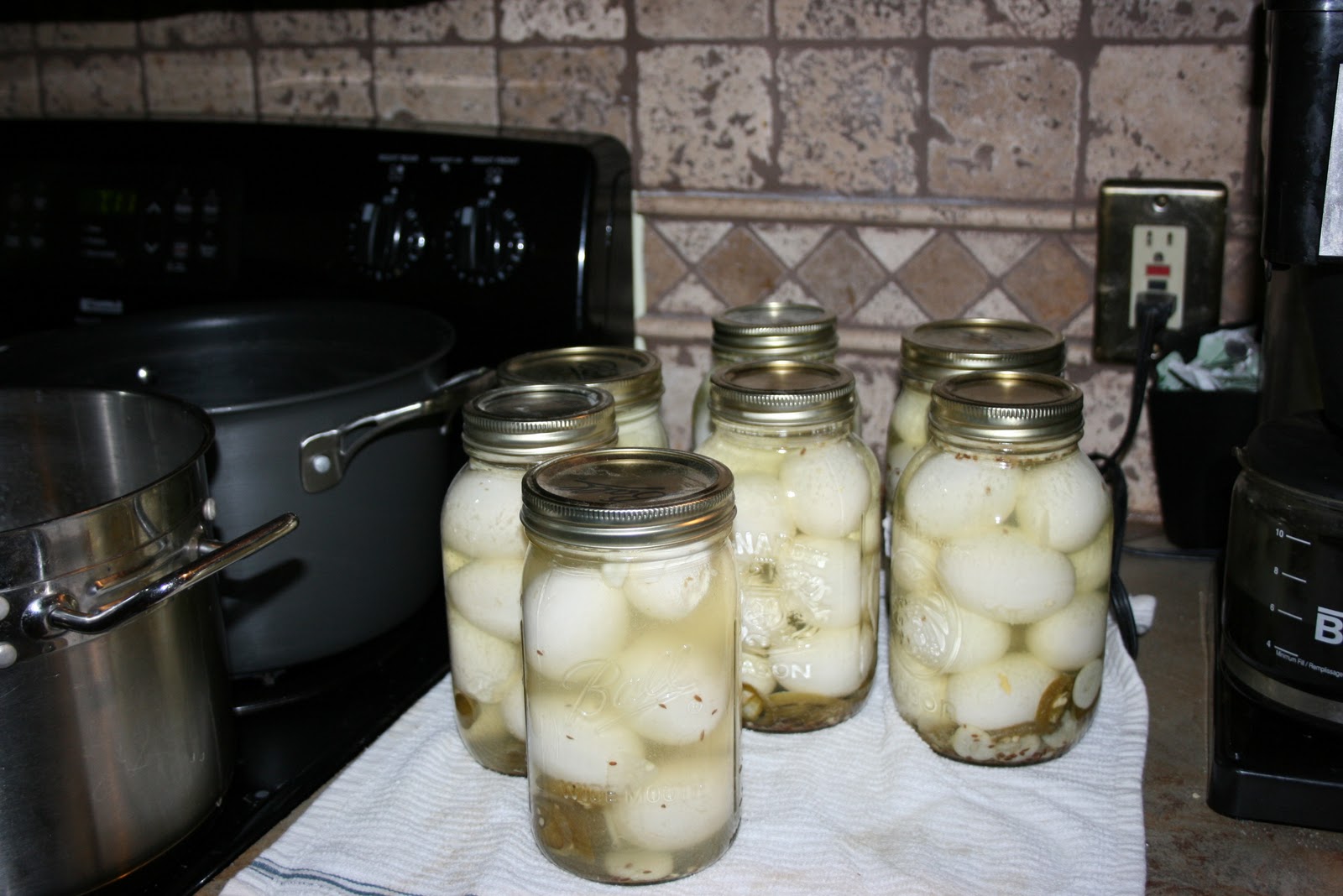
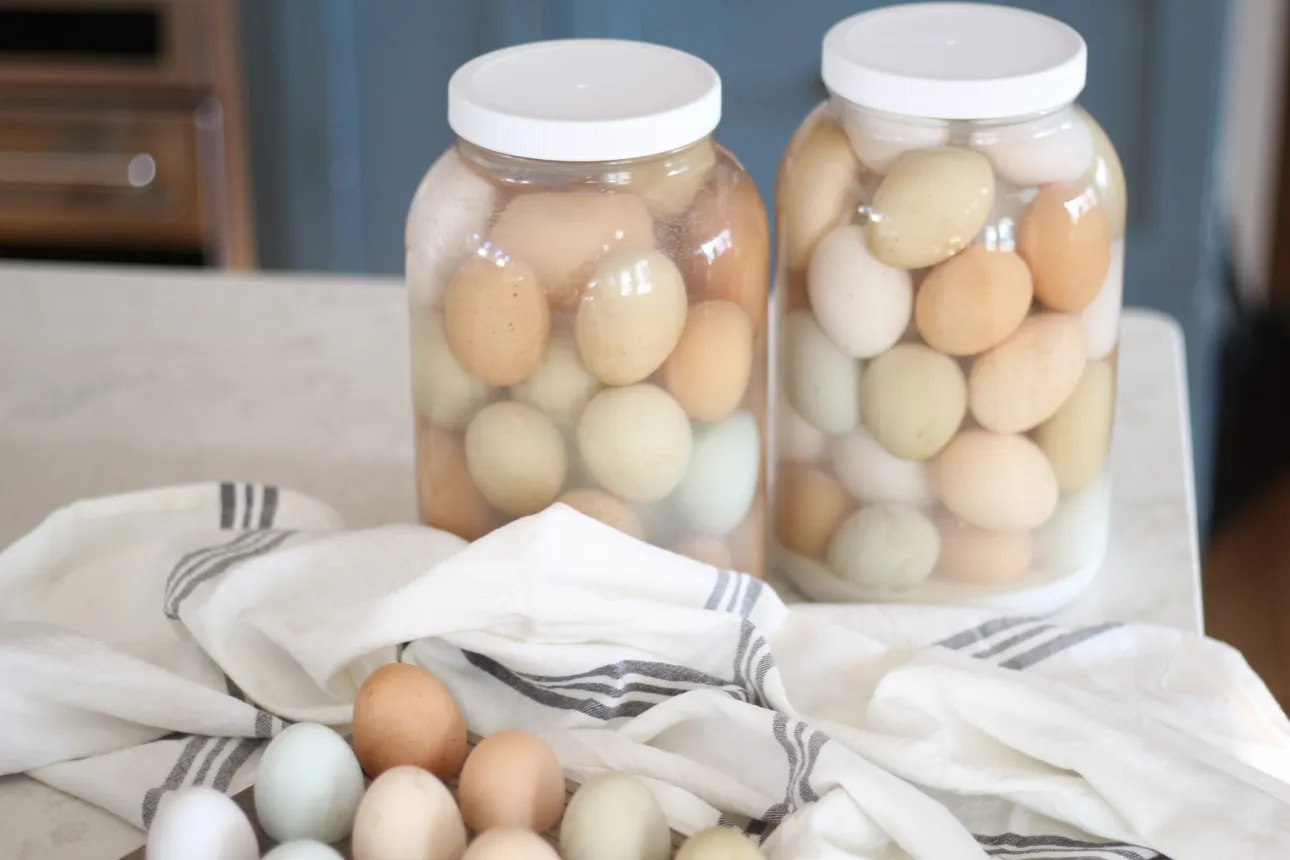
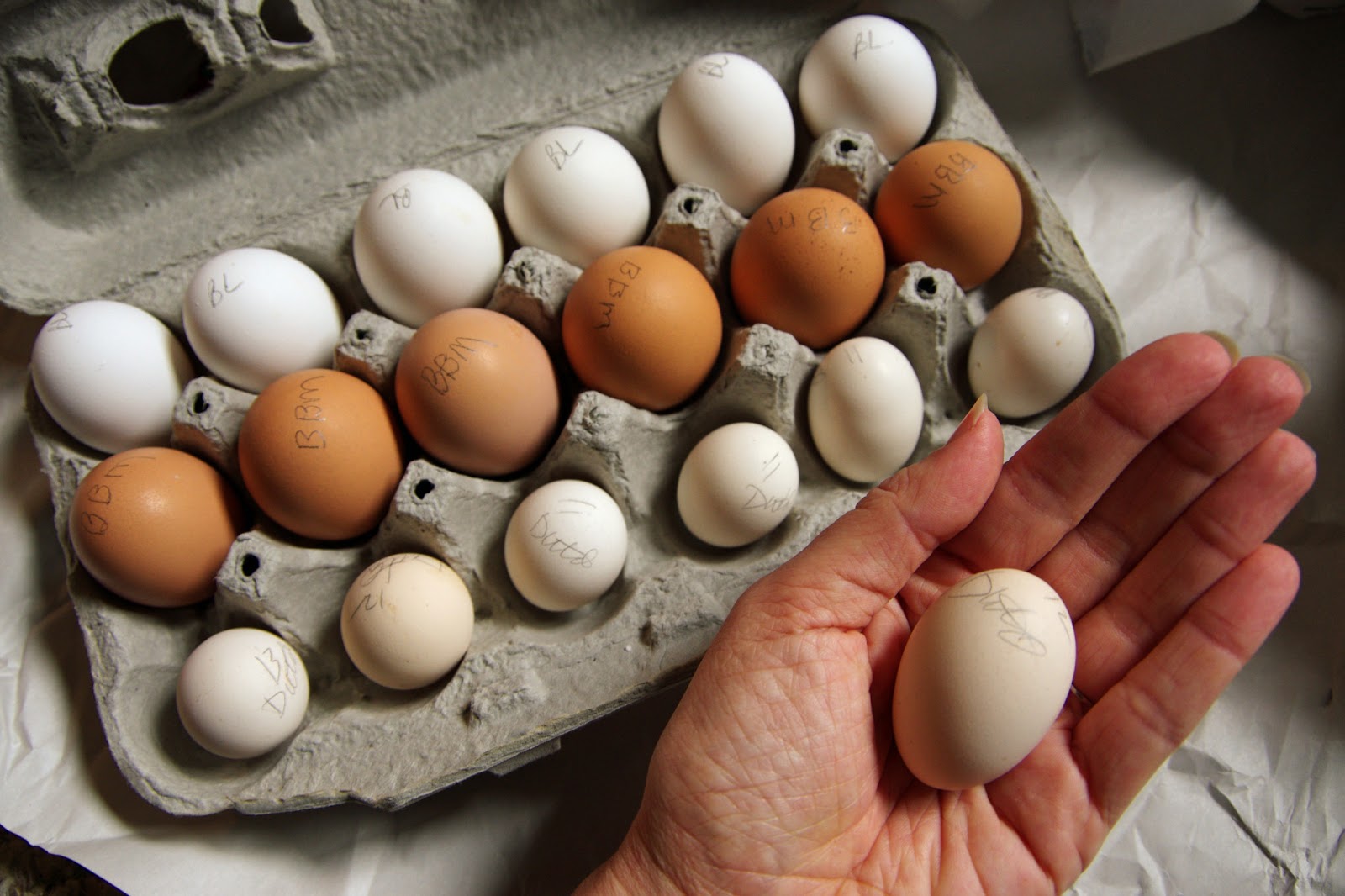
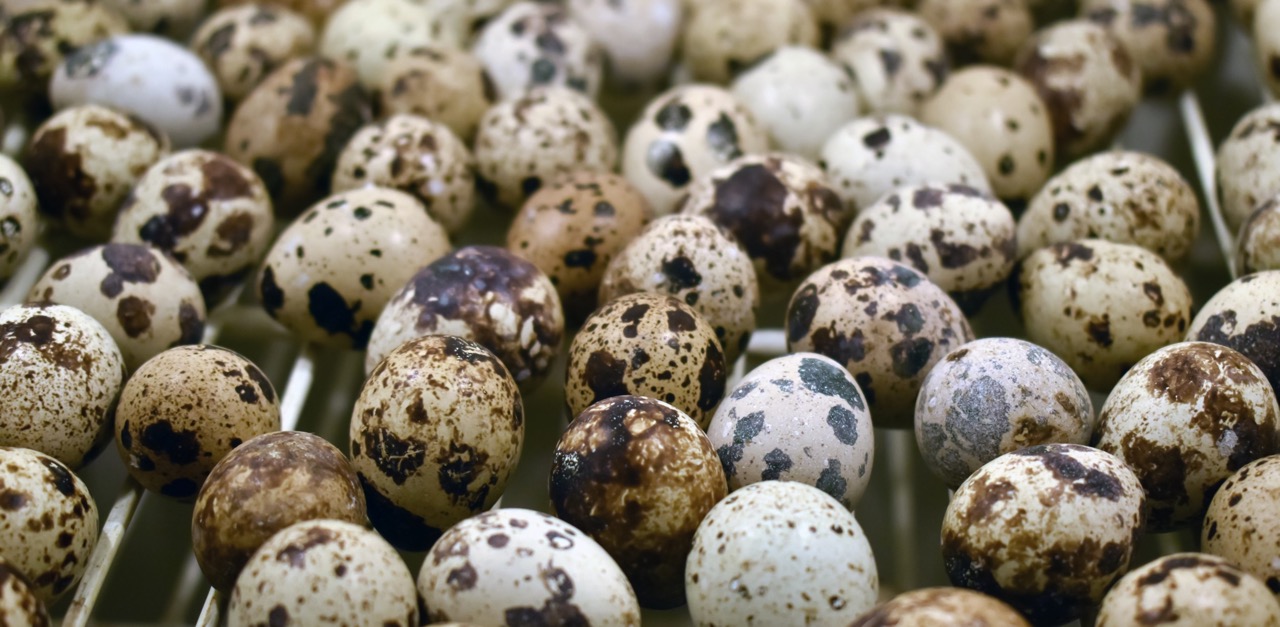


0 thoughts on “How To Store Egg Yolks”